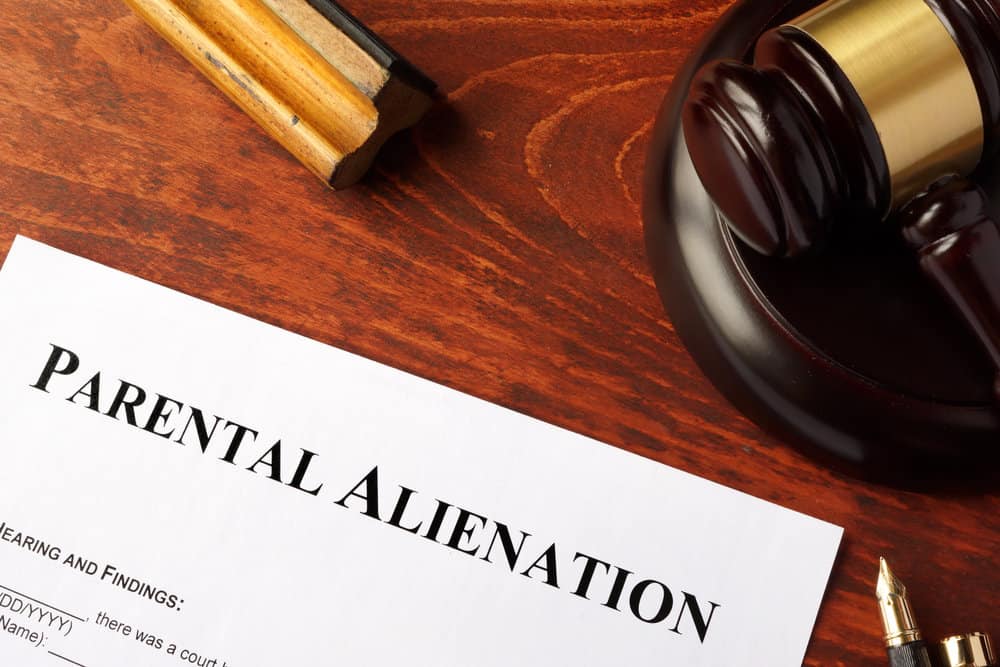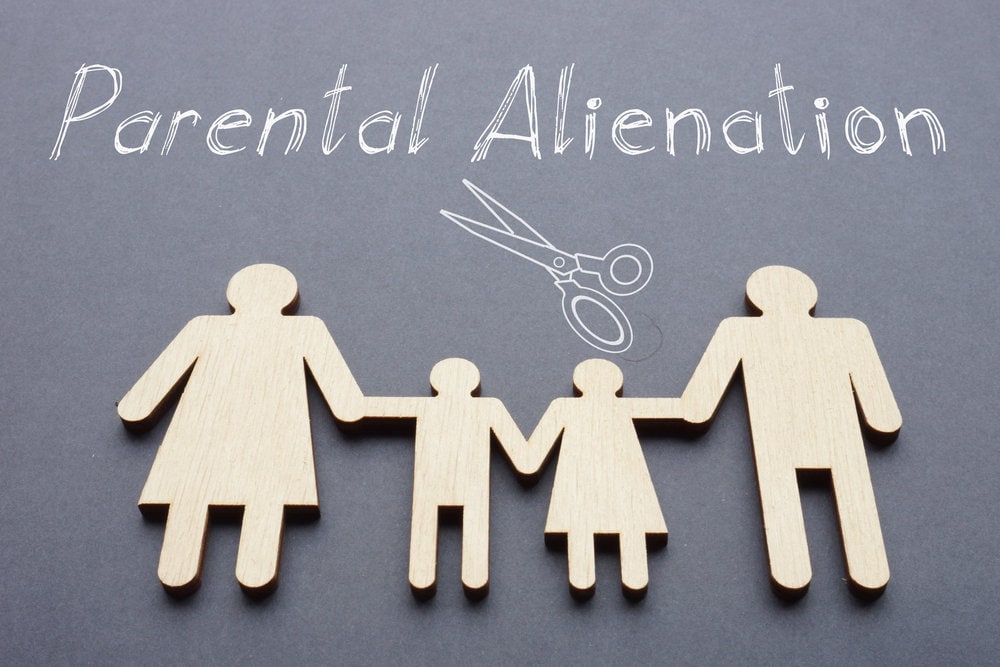Parental alienation laws play a critical role in addressing the manipulation of children by one parent against the other during divorce or custody disputes. Emotional abuse can result in long-lasting psychological repercussions for the child and the targeted parent. Understanding the specific laws, how parental alienation manifests, and how to navigate the legal system can provide crucial support for those affected by this damaging process.
One of the challenges in addressing this issue is identifying and presenting evidence of parental alienation during custody battles. The courts must weigh various factors, including any derogatory statements made by the alienating parent, withholding visitation rights, and the impact on the child’s wellbeing. In addition, therapists and psychologists may be called upon to assess the situation, provide expert testimony, and offer recommendations for preventing or mitigating the harmful consequences of parental alienation.
Key Takeaways
- Parental alienation laws seek to protect children from manipulation in custody disputes
- Evidence and expert testimony play a crucial role in identifying and addressing alienation
- Understanding the legal aspects and prevention measures can help protect vulnerable families.

Understanding Parental Alienation
Definition and Concept
Parental alienation is a phenomenon that occurs when a child refuses to maintain a relationship with one parent, largely due to manipulation or false information conveyed by the other parent. It is seen in some high-conflict separations, divorces, and post-divorce scenarios and can involve intentional sabotage of a child’s relationship with the other parent for no legitimate reason.
Parental Alienation Syndrome (PAS)
Parental Alienation Syndrome (PAS) is a mental condition in a child who suffers from parental alienation. A child with PAS has a distorted or false belief that the targeted parent is evil, dangerous, or unworthy of love and affection. This syndrome develops due to continuous manipulation and false information provided by the alienating parent, ultimately leading to the child’s rejection or disfavor of the targeted parent. Understanding and addressing PAS is essential in divorce and custody cases to ensure the child’s best interest.
Legal Aspects of Parental Alienation
Parental Alienation Laws
Parental alienation is a form of emotional abuse. It involves one parent exhibiting hostile behavior and demeaning language toward the other, leading their child to become hostile toward the targeted parent. This has become a recognized issue in many jurisdictions in family law cases, highlighting the need to protect the child’s welfare and parental rights.
Although no specific laws are titled “Parental Alienation Laws,” courts acknowledge that parental alienation can severely impact the child’s mental and emotional health. It is often assessed within custody and visitation decision-making processes, with judges considering the presence and severity of parental alienation to determine the child’s best interests.
Custody and Visitation Rights
In custody and visitation cases, courts are primarily concerned with the child’s best interests. Parental alienation can complicate these cases due to its negative impact on the child’s relationship with both parents. Courts may consider several factors in determining the best course of action in such cases:
- Evidence of parental alienation: Judges may assess whether one parent has a pattern of alienating behavior, such as repeated derogatory comments or excluding the other parent from the child’s life.
- Impact on the child: The court will evaluate the effect of parental alienation on the child’s mental and emotional well-being, including potential damage to their relationships and personal development.
- Willingness to cooperate: Judges may consider both parents’ willingness to promote a healthy relationship between the child and the other parent.
In severe cases of parental alienation, the court may adjust custody or visitation arrangements to safeguard the child’s emotional well-being and the targeted parent’s rights.
Parental Rights and Welfare
The court recognizes that the child’s welfare is paramount in family law cases. Parental rights, such as the right to establish and maintain a healthy relationship with one’s child, also play a critical role in the decision-making process. In situations involving parental alienation, the court may take certain measures to ensure both the child’s welfare and the preservation of parental rights, including:
- Counseling and therapy: Parents and children may be ordered to attend counseling or therapy sessions to mitigate the negative effects of parental alienation and enhance their relationships.
- Parenting education: Courts may recommend or require parents to participate in parenting education programs to improve their ability to co-parent and support their child’s emotional well-being.
- Supervised visitation: In cases where unsupervised visitation is not deemed safe for the child or the alienated parent, supervised visitation may be implemented as an interim measure.
Ultimately, the court’s primary concern is the welfare of the child and maintaining healthy relationships within the family unit, even in cases impacted by parental alienation.

Identification and Evidence
Signs of Parental Alienation
Parental alienation occurs when one parent manipulates a child into taking on the inaccurate belief that the other parent is unloving or even harmful. Identifying the signs of parental alienation is essential in gathering evidence and presenting it in court. Some common indicators include:
- The alienating parent making disparaging or derogatory remarks about the other parent in front of the child
- Unjustified hostility or anger from the child towards the non-alienating parent
- The child expressing resistance or refusal to visit or communicate with the non-alienating parent
- The alienating parent attempts to deny or restrict the non-alienating parent’s access to the child without legitimate reasons.
Witnesses and Testimony
In cases of parental alienation, the testimony of witnesses can be crucial evidence to support the claims made by the affected parent. Witnesses may include family members, friends, neighbors, therapists, or educators who have observed the alienating behaviors or the consequences of those behaviors on the parent-child relationship.
The affected parent needs to gather statements or reports from these witnesses to document the alienating behaviors. Sometimes, a child’s therapist or counselor may be asked to testify or provide a professional opinion regarding their emotional well-being and how the alienating behaviors impact their mental health.
Identifying parental alienation and compiling evidence of alienating behaviors is critical to resolving custody disputes. Recognizing the signs and gathering testimony from witnesses, the affected parent can build a strong case to present in court.
The Effects on Children and Alienated Parents
Mental Health and Emotional Distress
Parental alienation is a form of abuse with significant consequences for both children and alienated parents’ mental health and emotional well-being. Children exposed to parental alienation may experience a range of emotional and mental health issues, including anxiety, depression, low self-esteem, and anger stemming from the manipulation and denigration of the targeted parent.
For alienated parents, the consequences are equally severe. They often face powerlessness, despair, and guilt as they struggle to maintain a relationship with their children amidst an ongoing campaign of parental alienation. The alienated parent’s emotional distress may also result in depression, anxiety, and loss of self-esteem. These mental health effects contribute to further deteriorating their relationship with the child.
Relationship with Alienated Parent
Parental alienation can significantly disrupt the relationship between children and the alienated parent. As the child becomes more exposed to the alienating parent’s manipulative tactics, they may be led to develop negative, distorted perceptions of the targeted parent, making it difficult for them to maintain a healthy, loving relationship in the long term.
This damage to the relationship may become more entrenched, escalating the emotional distress experienced by the child and the alienated parent. Legal interventions such as no-contact orders may sometimes be necessary to protect the child from further harm. Still, these measures may also hinder the possibility of repairing the broken bond between the alienated parent and child.
Understanding the impact of parental alienation on children and alienated parents highlights the need for effective intervention strategies to safeguard their emotional and mental health. By promoting awareness of the consequences of this form of abuse, there is a greater potential for professionals and families to work together in addressing and ultimately overcoming the challenges posed by parental alienation.

Professional Perspectives
American Psychological Association
The American Psychological Association (APA) acknowledges parental alienation as a complex and multidimensional issue in high-conflict separations and divorces. While the APA has not specifically defined parental alienation in its diagnostic manual, it recognizes its potential impact on the well-being of the children and families involved in such cases. Therefore, the APA encourages mental health professionals to be aware of and assess for parental alienation when working with families in divorce and custody disputes.
American Psychiatric Association
The American Psychiatric Association (APA) has not included parental alienation as a stand-alone diagnosis in the Diagnostic and Statistical Manual of Mental Disorders (DSM-5). However, parental alienation can be identified within other diagnostic categories, such as various relational problems. The APA emphasizes the importance of clinicians understanding the dynamics of parental alienation and using best practices in addressing its effects on children and families.
World Health Organization
The World Health Organization (WHO) acknowledges parental alienation in its International Classification of Diseases (ICD-11) context. Parental alienation is classified under “caregiver-child relational problem” within the section on “Problems associated with a primary support group.” This classification highlights the recognition by the WHO of the potential harm parental alienation can cause to children and families, as well as the need for appropriate interventions and treatment.
The Role of Psychologists and Therapists
Reunification Therapy
Reunification therapy is a process in which psychologists or therapists help to rebuild the relationship between a child and a parent who has been alienated. This form of therapy is often employed in cases where parental alienation is suspected or has been identified. The main goal is to promote a healthy and positive bond between the child and the targeted parent, reducing the effects of manipulation and restoring a sense of balance in the family dynamic.
During reunification therapy, the therapist will work closely with the child and the targeted parent, addressing their concerns, emotions, and any misconceptions or false beliefs the alienating parent might have instilled. The therapist may employ various techniques such as play therapy, cognitive-behavioral therapy, and family systems therapy to help strengthen the relationship and improve communication between the child and the alienated parent.
Counseling and Mediation
Besides reunification therapy, psychologists and therapists can also be involved in counseling and mediation to address parental alienation issues. Counseling sessions may be conducted individually or as part of a group, focusing on topics like communication, coping skills, and conflict resolution.
Counseling aims to provide both parents with tools to better understand the effects of their actions on their children and identify ways to minimize these impacts. It can also help the targeted parent to develop strategies for dealing with the alienating behavior of the other parent and supporting the child through the process.
Mediation, on the other hand, involves a neutral third party – the mediator – who helps both parents to resolve their disputes and reach an agreement regarding custody and visitation. The mediator’s role is to facilitate communication and promote understanding between the parties while seeking a resolution in the child’s best interest. This process can be particularly helpful in cases of parental alienation, where the involvement of unbiased, trained professionals can facilitate a more productive and collaborative environment.
Litigation and Court Proceedings
Trial Process
The trial process in parental alienation cases involves presenting evidence and arguments to a judge, who then decides on custody and parenting plans. Both parents and their attorneys need to be well-prepared for trial, demonstrating the existence of alienating behaviors and their impact on the child. Expert witnesses, such as child psychologists, may also be called upon to assess the family dynamics and the child’s well-being in light of the allegations.
Appeals
In cases where a party believes the judge erred in their decision on parental alienation, there is an option to appeal to a higher court. The appellate court reviews the trial record to ensure that no procedural errors or incorrect interpretations of the law occurred during the trial process. However, it is essential to note that new evidence cannot be introduced at the appellate level. The success of an appeal often hinges on the trial attorney’s ability to establish a strong record supporting the argument of parental alienation during the trial process.
Documents
Various documents are critical in parental alienation litigation, including:
- Custody evaluations: A custody evaluation is an assessment conducted by a mental health professional to determine the child’s best interests. It may include interviews, observations, and psychological testing to provide the court with an objective evaluation of the family’s dynamics.
- Medical records: These records can help demonstrate any mental health issues or behavioral changes in the child that could be attributed to parental alienation.
- School records: School performance, attendance, and behavioral issues can also be important indicators of the impact of parental alienation on a child.
- Parental communications: Emails, text messages, and other written communication between the parents can serve as evidence of alienation tactics or attempts to address the issue.
In conclusion, parental alienation cases can be complex and emotionally charged. Thorough preparation, presentation of evidence, and skilled legal representation are crucial in achieving a fair and just outcome for all parties involved.
Prevention and Management
Parental alienation is challenging, but there are ways to prevent and manage this problem effectively. One essential tool for preventing parental alienation is developing a parenting plan. This plan should outline the roles and responsibilities of each parent, as well as their rights to visitation and custody. A well-constructed parenting plan can help reduce the chances of one parent manipulating the child against the other.
Establishing open and healthy communication between parents is crucial in preventing parental alienation. This includes discussing issues related to the child’s welfare and making joint decisions. Regular communication allows parents to address misunderstandings and disputes before they escalate into more significant problems.
Equally important is the ability to manage resentment between parents. This can be achieved by seeking professional services such as mediation, therapy, or counseling. Professionals can help parents resolve conflicts and maintain a positive co-parenting relationship. This, in turn, reduces the risk of parental alienation occurring and ensures a more stable environment for the child.
Another strategy for preventing and managing parental alienation is educating all stakeholders, including parents, children, and legal and mental health professionals. Public awareness and education about the consequences of parental alienation can discourage such behavior and assist parents in identifying early signs of this issue.
In some cases, intervention may be required where prevention is impossible. This could involve temporary suspension of the child’s contact with the favored parent or even placement apart from both parents, depending on the severity of the situation. Professionals from various disciplines, such as psychiatrists, psychologists, social workers, lawyers, and judges, should be involved in the intervention process to achieve the best outcome for the child.
A comprehensive approach incorporating preventive measures, such as creating a parenting plan, fostering open communication, managing resentment, and raising public awareness, can help mitigate the risk of parental alienation and its subsequent negative consequences.

Frequently Asked Questions
What are the legal consequences of parental alienation?
Parental alienation, the process of psychologically manipulating a child into showing fear, disrespect, anger, or hostility toward a parent, can have legal consequences in family court. Although there are few specific laws related to parental alienation in the United States, courts may still consider this during divorce and custody cases. Legal consequences can include changes in custody or visitation arrangements and potentially supervised visitation or reunification therapy for the alienating parent.
How do courts recognize and address parental alienation cases?
In parental alienation cases, courts typically look for evidence that the child’s behavior has changed due to manipulation by one parent against the other. Courts may consider written communication, records of incidents, and reports from mental health professionals or neutral third parties. Judges may also order a child custody evaluation or appoint a guardian ad litem to investigate and provide recommendations.
What are the most common strategies to combat parental alienation in court?
To combat parental alienation in court, gathering evidence demonstrating the alienating behavior and its impact on the child is essential. This may include documenting instances of the alienating parent’s actions, obtaining statements from neutral witnesses, and seeking evaluations from mental health professionals. Presenting a clear, well-documented case can strengthen one’s position in court.
Can parental alienation affect custody and visitation rights?
Yes, parental alienation can affect custody and visitation rights. Suppose a court determines that one parent has engaged in alienating behavior. In that case, they may modify custody or visitation arrangements to protect the child and promote a healthy relationship with the targeted parent.
What is the role of a mental health professional in parental alienation cases?
Mental health professionals play a crucial role in parental alienation cases by conducting evaluations, providing therapy, and offering expert testimony in court. Their assessments can help determine the extent of alienation, the impact on the child, and any underlying mental health issues contributing to the alienating behavior. Their recommendations can also influence court decisions related to custody and visitation.
Are there any organizations or resources available for dealing with parental alienation?
Organizations and resources are available to help parents and professionals address parental alienation. These may include support groups, educational materials, and access to professionals who specialize in this field. Some resources may offer assistance in understanding parental alienation laws and strategies for navigating the legal system.




